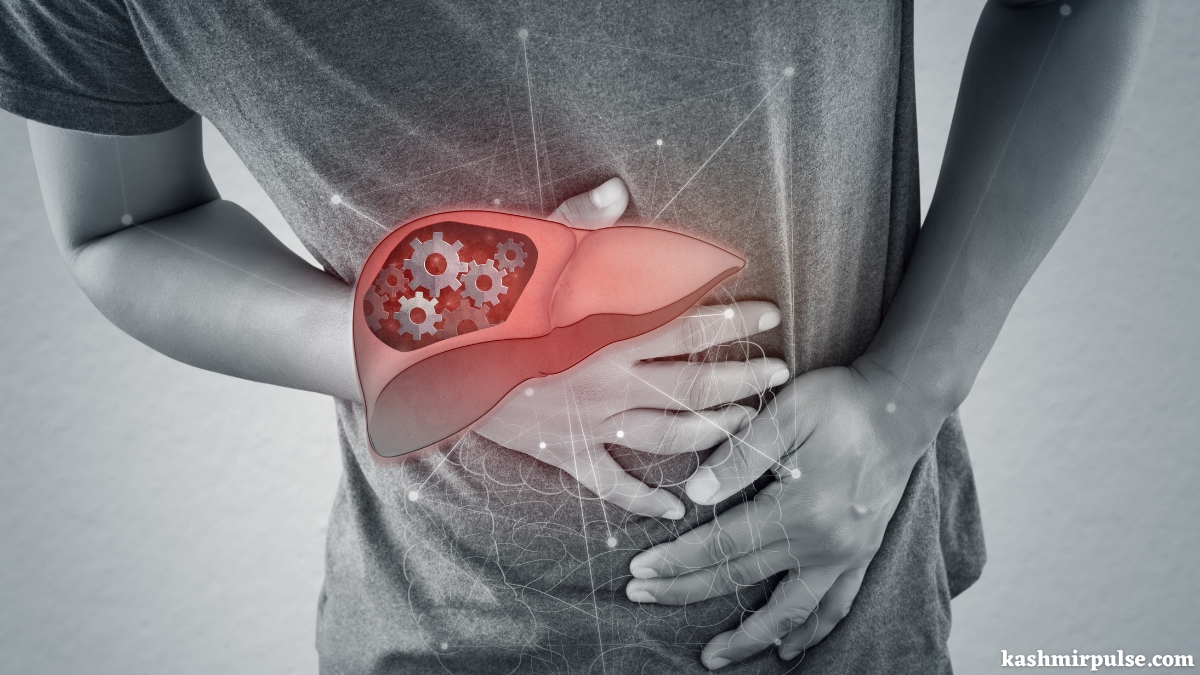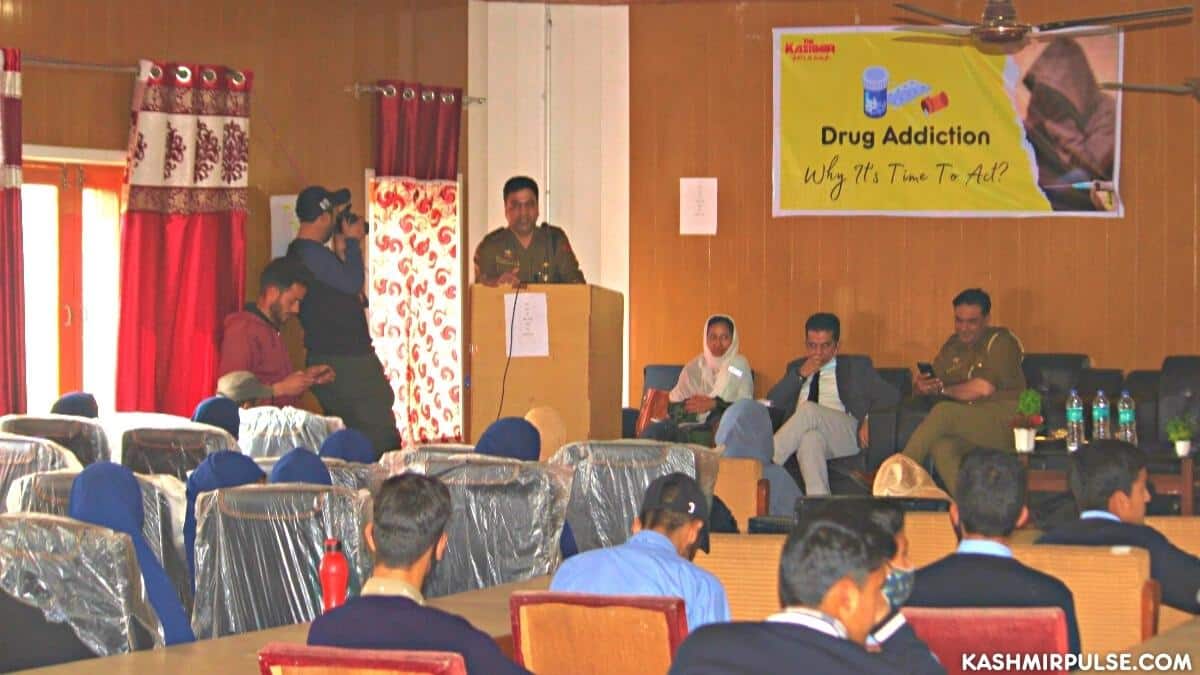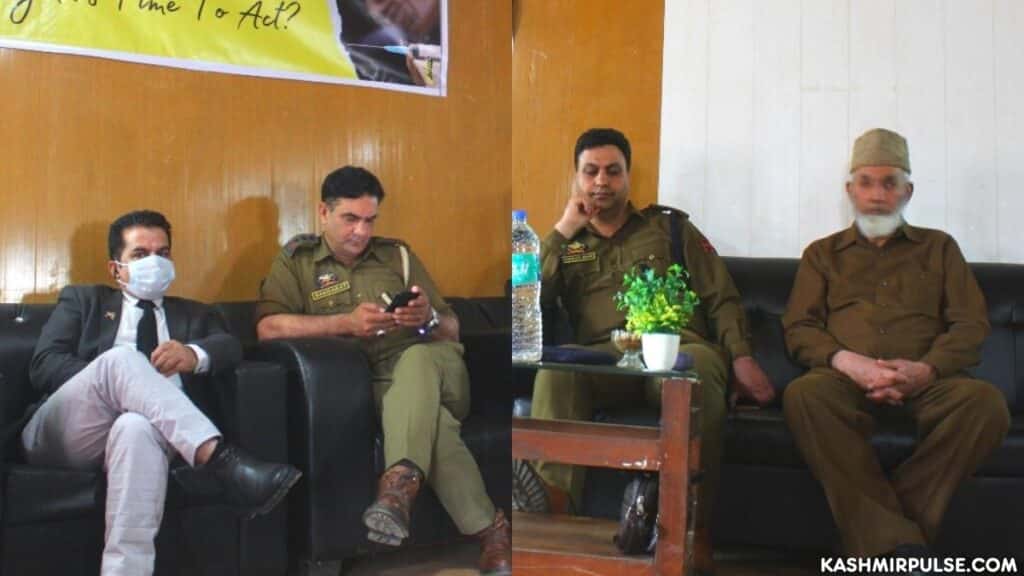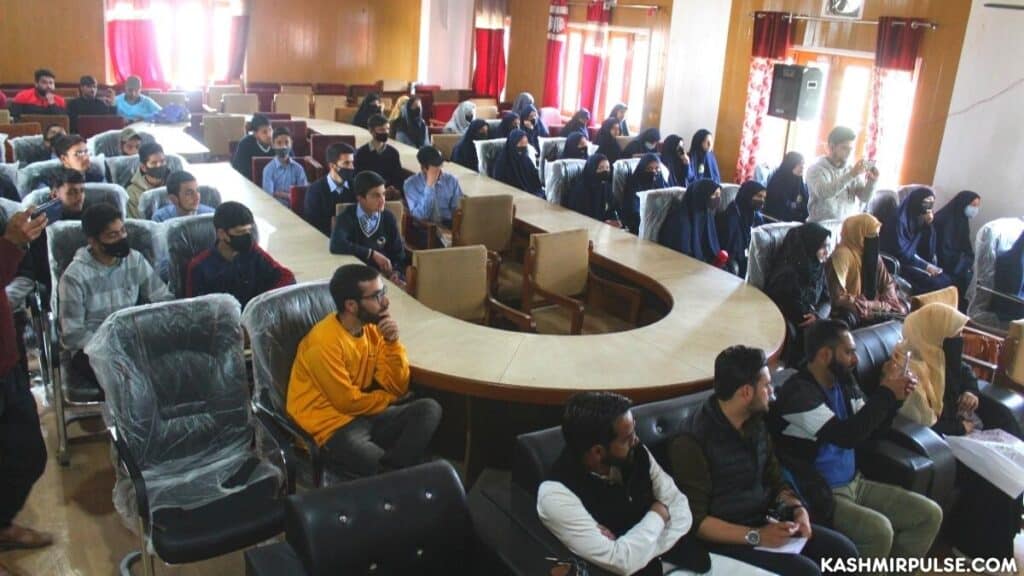Pulwama Against Drugs: SSP Nitya urges community action at awareness event
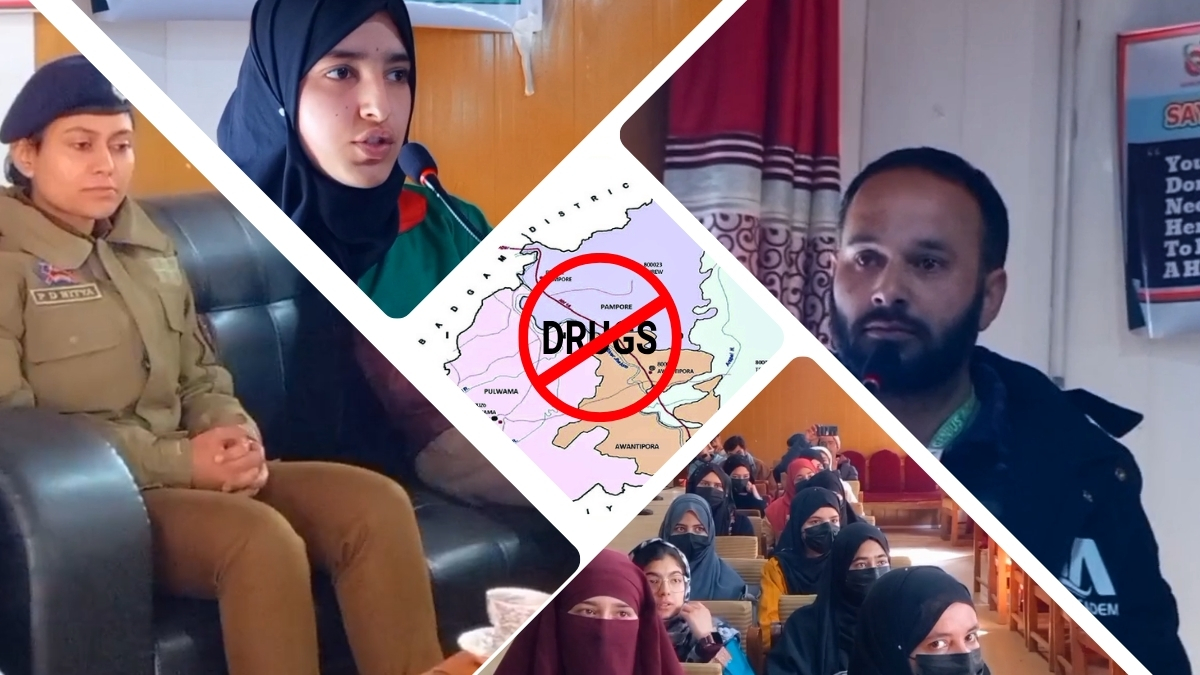
PULWAMA — With a resolute commitment to combatting drug addiction, Town Hall Pulwama hosted a pivotal event today, organized by The Kashmir Pulse news portal in collaboration with Genius Academy Pulwama.
Gathered under the banner of enlightenment, students and citizens alike convened to hear from a distinguished panel of experts, headlined by Chief Guest SSP Pulwama PD Nitya. Joined by esteemed speakers Mr Mohammad Amin, Dr Mudasir Ahmad Gori, Engineer Faisal Gulzar, and Dr Tanveer Hayat, the event illuminated the dangers of addiction and strategies for resilience.
Mrs Sakeena Jabeen adeptly navigated the proceedings, facilitating an engaging dialogue between speakers and attendees. Against the backdrop of rising drug-related incidents, the speakers delved into the intricacies of addiction, equipping the audience with vital insights and practical tools for prevention.
SSP Pulwama PD Nitya seized the spotlight, issuing a clarion call for collective action. "We cannot afford to be passive bystanders in the face of this menace," she declared, urging citizens to collaborate with local authorities in combating drug peddling. "Your vigilance and cooperation are indispensable in our fight against drug abuse," she emphasized.
Expressing gratitude for The Kashmir Pulse's advocacy, SSP Pulwama lauded the news portal's commitment to community welfare. "Their initiative in organizing today's event underscores the power of media in fostering societal change," she remarked.
In a testament to the event's interactive nature, students eagerly posed questions to the panel, receiving insightful responses and guidance. This exchange epitomized the spirit of solidarity and shared responsibility that permeated the gathering, as attendees resolved to confront the drug menace with determination and unity.
As the event concluded, a palpable sense of purpose lingered in the air, underscoring Pulwama's resolve to safeguard its youth and uphold community well-being. Through education, awareness, and collaborative action, the town embarks on a steadfast journey towards a drug-free future.
This post first appeared on The Kashmir Pulse

